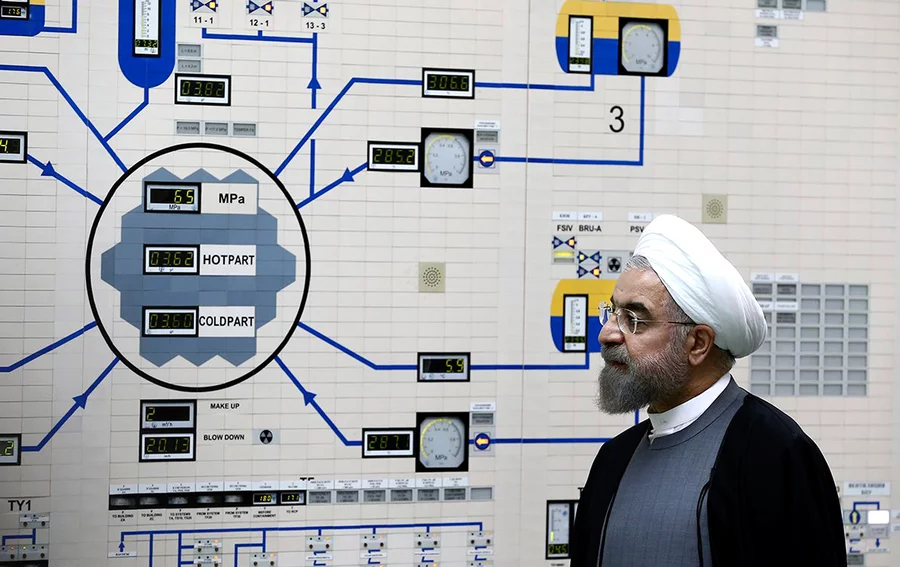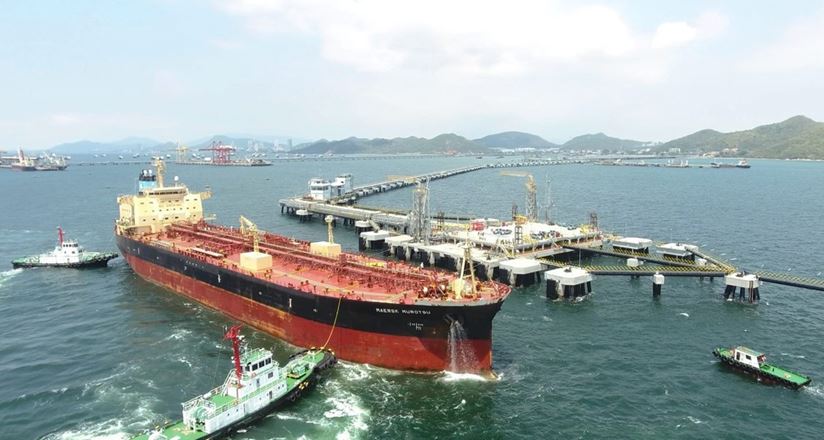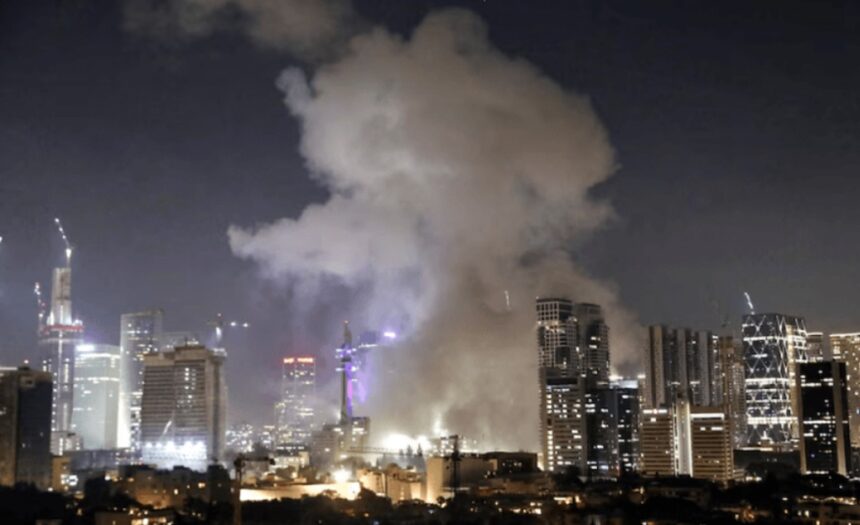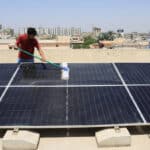JERUSALEM – The Middle East faces the threat of a wider war as Israel and Iran trade heavy attacks. Israel has struck Iran’s nuclear and military facilities, while Iran has fired missile volleys in response.
Decades of rivalry and Iran’s nuclear goals drive this new round of fighting. The crisis now affects global markets, shakes stability in the region, and reaches countries like Thailand.
On June 12, Israel began “Operation Rising Lion,” sending 200 jets to hit more than 100 sites across Iran. Key targets included the Natanz uranium enrichment plant and military command posts. Israel called the strikes an attempt to block Iran from building nuclear weapons.
Prime Minister Benjamin Netanyahu warned Iran could build nine nuclear bombs within days. The airstrikes killed top Iranian officials, including Revolutionary Guards chief Hossein Salami and six nuclear scientists, hitting Iran’s military and nuclear efforts hard.
Iran answered quickly, launching hundreds of ballistic missiles and more than 100 drones at cities such as Tel Aviv and Jerusalem. Iran’s state news said these attacks were payback for what it labelled as Israel’s “declaration of war.”
Most missiles were stopped by Israel’s Iron Dome, but reports say a few made it through, injuring at least 40 people and killing one. Iran’s Supreme Leader, Ayatollah Ali Khamenei, vowed a “harsh and decisive” answer, hinting at more violence to come.

Iran’s Nuclear Plans Fuel the Crisis
Iran’s nuclear program remains at the heart of the conflict. Israel claims Iran has enriched uranium to 60 percent, nearly weapons-grade, and has enough for several bombs. Critics note that Israel has warned about Iran’s nuclear progress for twenty years, which makes the timing of these strikes a point of debate.
The International Atomic Energy Agency (IAEA) reports Iran’s progress but also mentions Iran’s cooperation with UN inspectors, adding complexity to the situation.
The attacks have stalled planned nuclear talks between the U.S. and Iran in Oman. Iran has now paused negotiations “until further notice.” Some believe Israel acted out of doubt about a possible U.S.-Iran deal, fearing it would not stop Iran’s nuclear aims.
The United States, led by President Donald Trump, faces a tough situation. Trump told Reuters he knew about Israel’s actions ahead of time but did not give direct military help, stressing talks over weapons.
He said he hopes the raids could push Iran toward an agreement, adding, “They can still work out a deal, it’s not too late.” Still, U.S. forces helped by intercepting some of Iran’s missiles, showing support for Israel.
Trump’s focus on diplomacy stands in contrast to Israel’s doubt about U.S.-led talks. Some of Trump’s supporters believe Israel’s attacks might weaken Iran before any new talks. Many analysts say Israel acted alone, doubting the U.S. would enforce tough limits on Iran. The White House has called a National Security Council meeting to deal with the crisis, and the U.S. Embassy in Israel has told its staff to stay inside.

Thailand’s Economy Under Threat
Thailand now faces risks from the conflict’s fallout. As an importer of oil, Thailand is feeling the pinch from rising energy prices as crude costs climb with worries of broader chaos. No oil sites have been bombed yet, but the Thai Ministry of Foreign Affairs has issued a warning, asking citizens to put off non-essential trips to the Middle East. Thai companies, especially in agriculture and electronics, expect shipping and supply chain problems.
Tourism in Thailand could also take a hit. Visitors from the Middle East, including both Iranians and Israelis, are a key part of the country’s travel revenue. If the conflict drags on, fewer tourists from the region may visit, echoing past profit losses during earlier Middle East crises. Thailand, often seen as a neutral spot for international talks, may also face pressure as global powers take sides.
This new conflict goes far beyond the Middle East. Oil prices remain rocky, with fears that Iran’s allies like Hamas and Hezbollah could join the fight, though both groups currently have less ability to respond.
UN Secretary-General António Guterres has urged both sides to stop, warning that things could spiral out of control. China and other countries have condemned the attacks, while European leaders such as France’s Emmanuel Macron are pushing for calm to keep the region stable.
There’s also fear of radioactive leaks from damaged nuclear plants like Natanz, which could cause health and environmental disasters. If Iran rushes to build a bomb in response, the entire region could face even more turmoil. Calls are growing for more international inspections and renewed talks on sanctions relief.
Sirens in Tel Aviv and Tehran signal a crisis with no easy solution. While Israel’s “Rising Lion” campaign may have slowed Iran’s nuclear plans, it has also hardened Iran’s desire to strike back. The U.S. now walks a tightrope, backing Israel yet hoping to keep the wider region from exploding. For Thailand and the world, the stakes are real: economic shocks and security threats are possible if the fighting gets worse.
Both Reuters and Fox News highlight how serious this moment is. A single mistake could start a bigger war, but diplomatic efforts might still offer a way out. As Netanyahu promises to keep hitting nuclear sites like Fordo and Khamenei prepares a response, the region—and the world—waits anxiously.
Sources: Reuters, Fox News














